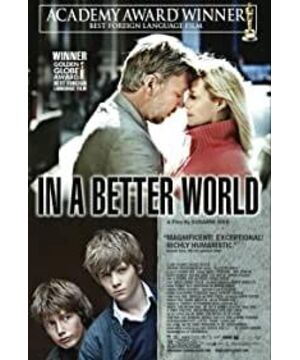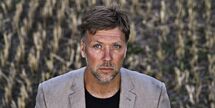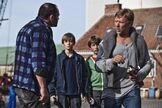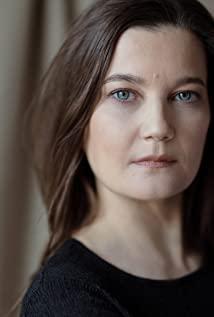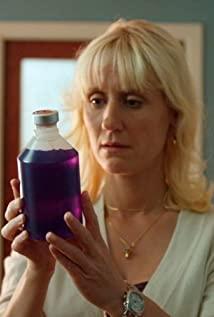The translated names Better World, Civilized Society and Revenge all express the core of the film to varying degrees. I won't repeat the complex here, I just think of the trivial things in my growth, and vomit along the emotions of the film. 1. I don't know how many people feel the same way as I do, and in retrospect, elementary and middle school has become a place with horrific memories, and that feeling isn't necessarily directly related to personal experience. Competition and struggle are always present, expressions of likes and dislikes are accompanied by confrontational gestures, children are skilled in social mobilization, hostility and hurt are nakedly expressed, "group" becomes a safe and successful way of individual existence, and the state of helplessness is isolation - "No one plays with me". When you think about the ridicule, discrimination, abuse, and bullying at the beginning, whether as a person who intentionally inflicted harm or a powerless bystander, you must not forget the bewildered face of the recipient in the crowd, and these expressions will be gradually enlarged in the future. , and at some moments, it coincides with the painful, terrified, helpless faces of the characters in the film. After college, looking at the group process, Zimbardo's Stanford Prison Experiment and Li Meng's talk about Foucault's "Discipline and Punishment", all the typical examples that come to mind occur in schools, which is why the whole system of school education occurs. a new understanding. Its core is not intense competitive learning, mean or kind or always responsible teachers, lack of self-awareness and self-space, but the production of a complete set of control technology with honor as the core, the core mechanism is the division of Minutes of surveillance: The "special seat" placed near the podium, the school-level students on duty with their armbands and their heads held high, walking around the campus, there is always a gap in the back door of the classroom. Everyone watches everyone, and children become part of technology. Guilty is always a disgrace to collective "crime": poor personal hygiene, delayed academic performance, and even "slow reaction" and "ugly appearance" have become collective and individual disgrace. Punishments are more varied: ridicule, sarcasm, booing, discrimination, isolation, name-calling, physical violence. When the personal self-awareness is not so strong, as children, we may never truly understand how cruel and lethal power such technology has. The vulnerability of children is always underestimated by adults, and the cruelty of children is always underestimated. They may know the result, but the consequences are far beyond imagination. The impact of this on personal growth is not unpredictable: one is that oppression produces resistance, and violence breeds violence. Second, the result is more general and more insidious. People are naturally tamed, and even want to be tamed, pandering to domination becomes the normal way to advertise themselves, and people develop skills of self-control and a set of techniques to examine their own behavior. 2. I am more willing to admit that I was a failure in junior high school. It has nothing to do with grades, interpersonal and adolescence, but a lack of self-awareness. I hate machines but don't know how to deal with them. In those years, people really condemned their behaviors that were contrary to collective action from the inside. I hated it, but I didn’t have the ability to oppose it in my heart. I was afraid of it and catered to it. I enjoyed the affirmation from the power side. Can't find a way to fight. Called a loser, in fact, in retrospect, from elementary school to middle school and even later high schools and colleges with a good school environment, they all got the happiness and growth they deserved, and pursued knowledge and friendship with limited resources. However, this does not mean that he is strong enough in his heart, mature in character, or understands the way of self-survival in such an environment. This seemingly normal psychological state may be attributed to the fact that he is always on the side of the "justice group" and has good luck with the system. Insensitivity, ignorance about shame, and traditional and free home education with little theory to follow. Actually, it's really scary. What I call "happy" and "normal" in interpersonal relationships , simply because he joined the spiral of surveillance, ignoring the suffering of others and himself under the repressive system. This left me with a sense of amorality after the emergence of the conscious realm. It may really only be a matter of time sooner or later the individual's understanding and sensitivity to the system. So there is a reverse process. After I had the understanding and expectation of all rational and mature interpersonal relationships, unconscious hidden violence came back through time and space and objects - after all the concepts of self-esteem, shame, and civilization were fully formed. At this time, the children already understand that the price of civilization is pain and minimizing the damage of direct attack by violence, and the theory that communication rationality is an ideal type shows people in social life that civilization is nothing but one. Self-torture and practice are just like freedom. In "Better World", Anton appears as a symbol of modern civilization: a doctor, who provides humanitarian relief work in refugee camps in Africa, and has a deep understanding and interpretation of compassion, civilization, tolerance, rationality, and principles. Such a father who was caught off-guard by a car mechanic in front of his own children (and slapped by the father of the other child for pulling away two children who were fighting). This scene, whether it is for the children or the audience, brings deep psychological shock, yes, not embarrassment, but psychological shock. The child's reaction is direct. Even the youngest son will use cursing to calm himself down. The older son Elias and his good friend Christian have since planted a plan of revenge. And Anton chose to take the children away. In order not to fail the father's image and let the children understand the wrongness of violence, he took the three boys to find a car mechanic for the second time. The repayment is over. He tells the child that it's just fists, it doesn't hurt, and that the real losers are those who use violence. Apart from violence, he can no longer prove his strength. Aside from the follow-up plot and the psychological development of the children, the film and real life throw a dilemma for us: how to end violence? The shot is heavier than the striker? Or are they proclaiming their failure with another understanding? The latter may become a person with a strong psychology, and what he must first go through is the self-torture of civilization. Anton himself and his experiences have made it clear that forgiveness is not as meaningful as one might imagine for the individual who has done it, and that forgiveness in general, including ourselves, is an individual who is suffering and eternally causing others to suffer, This is the true purpose of morality and civilization. 3. I don't know where I ran to, and the topic was brought to the child. It may be the relationship between estrogen, girls will have a tendency to be close to children at a certain stage. The children at home become the objects of observation, as are the "environment" and their interactions. Parents, relatives, friends and elders, peer groups, family education, social customs, etc. all constitute an individual's "environment". In these observations, it is not difficult for people to find all possibilities of active communication and understanding, and it is easy to see the unpredictable effects that the environment can bring. Therefore, when I recall and think about the various things that have grown up to this day, it is not difficult to examine the imprints they have left on me. The better world we want to achieve in our lifetimes is not about raising our arms and shouting, but about the little things that exist in these marks. Straight sigh, it is really difficult to grow into an adult.
View more about In a Better World reviews


